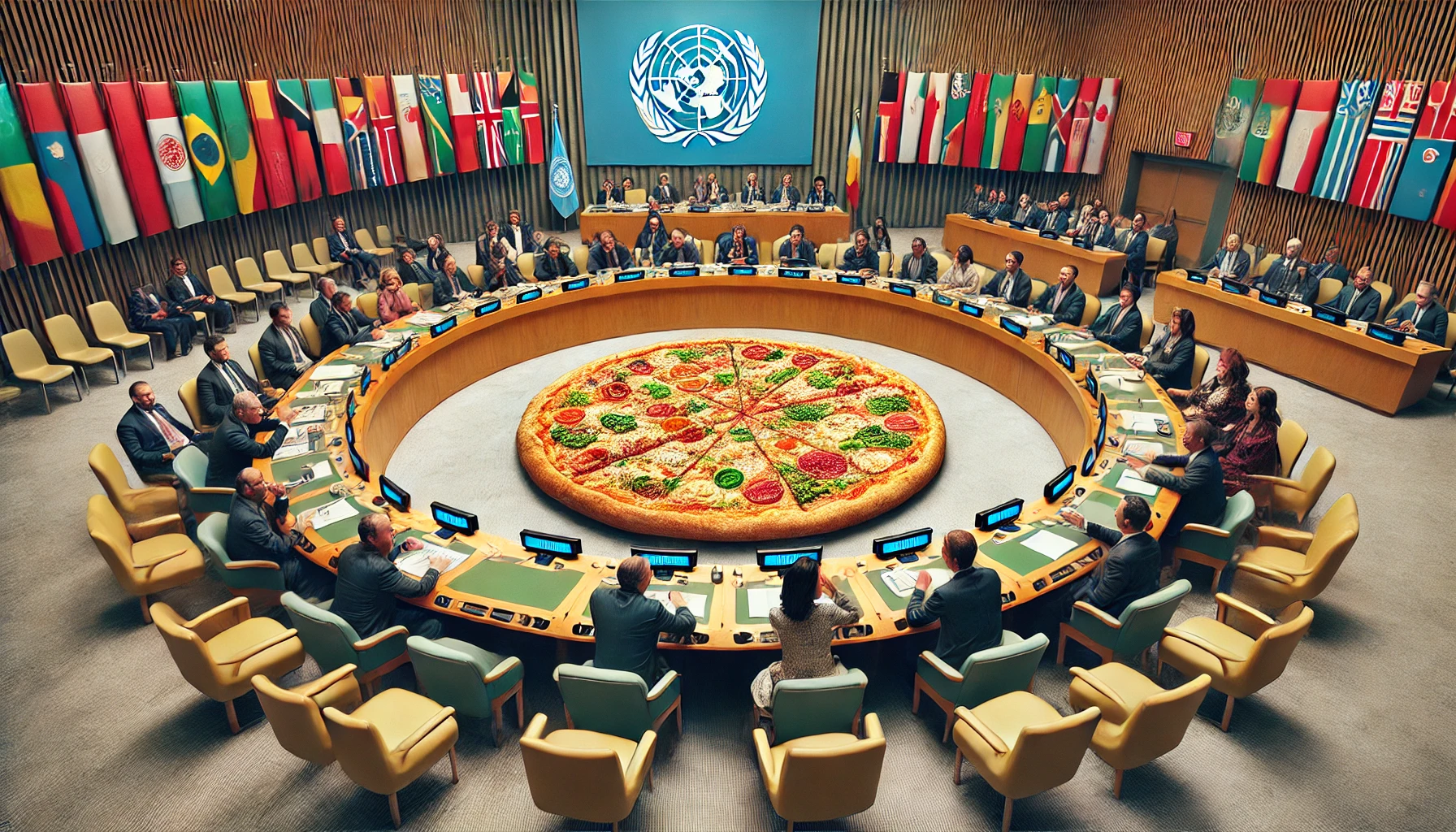In a world increasingly beset by conflict and division, the United Nations has launched an unconventional and savory new initiative: the “Peace Through Pizza” program. Announced by Secretary-General António Guterres, this initiative aims to foster peace and dialogue by bringing warring parties together over a universally loved dish – pizza.
The program, part of the UN’s broader New Agenda for Peace, will involve deploying gourmet pizza chefs to conflict zones. These culinary ambassadors will craft pizzas featuring ingredients that represent the cultures and cuisines of the involved parties, hoping that the shared love of pizza can create a conducive environment for dialogue and reconciliation.
In a unique partnership, the UN is collaborating with the Church of Crustianity, a parody religion that worships pizza and promotes unity through shared meals. The Church, guided by their doughy deity Cheesus Crust, preaches that pizza is not just food but a symbol of togetherness and peace. “Pizza has the power to bring people together, no matter their differences,” said a spokesperson for the Church of Crustianity. “Through this partnership, we hope to spread the message that sharing a meal can be the first step towards resolving even the most entrenched conflicts”.
The first deployment of the “Peace Through Pizza” program is set to take place in Gaza, where the newly appointed UN Senior Humanitarian Coordinator, Sigrid Kaag, will oversee the distribution of peace pizzas amid ongoing aid efforts. The initiative aims to combine immediate humanitarian relief with longer-term peacebuilding efforts.
While the initiative has been met with a mix of skepticism and optimism, it represents a creative approach to peacebuilding. “It’s a symbolic and positive gesture,” noted one observer. “If we can start with pizza, perhaps we can build up to more substantial peace talks.”
As the world watches, the success of the “Peace Through Pizza” program remains to be seen. However, the UN remains hopeful that this delicious initiative will pave the way for more innovative and effective peacebuilding strategies in the future.

